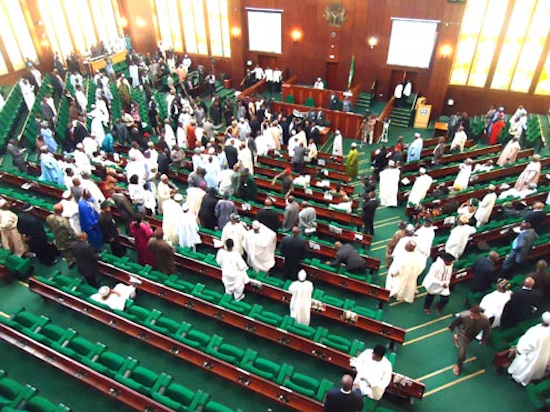The House of Representatives has said that it would review all loan agreements and conditions signed by the Federal Government, especially those from
The House of Representatives has said that it would review all loan agreements and conditions signed by the Federal Government, especially those from the Chinese government.
The Vice-Chairman of the House Committee on Aid, Loans and Debt Management Chris Azubogu, stated this in an interview with one of our correspondents in Abuja, just as the Lagos Chamber of Commerce and Industry as well as the Manufacturers Association of Nigeria supported the investigation by the lawmakers into Chinese loans.
The House Committee on Treaties, Protocols and Agreements had last week begun an investigation into the loans taken by the country. The committee raised the alarm over loan agreements Nigeria signed with China. The lawmakers said the agreement might force Nigeria to concede its sovereignty to the Asian country if the loans were not paid back.
But the Minister of Transportation, Rotimi Amaechi, who appeared before the committee, asked the lawmakers to stop the investigation into the Chinese loans. He said the probe would send a wrong signal to China, which could stop the loans, thereby thwarting the nation’s rail projects.
The Vice-Chairman of the Committee on Aid, Loans and Debt Management, Chris Azubogu said, “The House generally is concerned. We are reviewing all the terms and conditions to know what they are like. The House is reviewing all loans and agreements.”
Also, a member of the Treaties, Protocols and Agreements, who spoke on condition of anonymity, stated that the lawmakers would not back down on the probe. The lawmaker asked, “Do you agree that more money (loans) should be taken when the former (previous) ones that had been taken have not been accounted for? You want transparency and you are taking loans, and we are saying ‘give us transparency.’
“If you are taking a loan for a particular project, can the project pay back the loan? We are in a capitalist economy and in that economy, we should be able to know that if we invest the money, the project should be able to pay back the loan invested. That is what informed the loans we are looking at. Then, what are the stringent conditions attached to the loans? If we are not able to pay back the loans, what will be the consequences? These are key legal issues. We are looking at the entire template holistically. If you are taking loans, did you abide by the Nigerian content laws which say that our instruments should be considered first before considering importation?”
